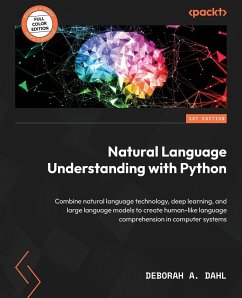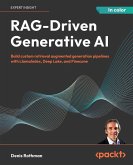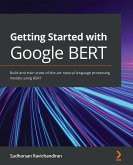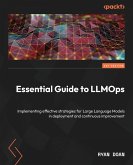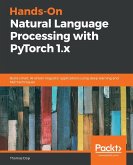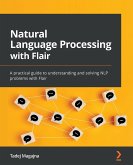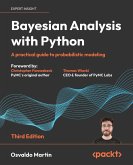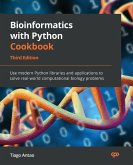Build advanced NLU systems by utilizing NLP libraries such as NLTK, SpaCy, BERT, and OpenAI; ML libraries like Keras, scikit-learn, pandas, TensorFlow, and NumPy, along with visualization libraries such as Matplotlib and Seaborn. ¿Purchase of the print Kindle book includes a free PDF eBook Key Features:Master NLU concepts from basic text processing to advanced deep learning techniques Explore practical NLU applications like chatbots, sentiment analysis, and language translation Gain a deeper understanding of large language models like ChatGPT Book Description: Natural language understanding (NLU) organizes and structures, language allowing computer systems to effectively process textual information for many different practical applications. Natural Language Understanding with Python will help you explore practical techniques that make use of NLU to build a wide variety of creative and useful applications. Complete with step-by-step explanations of essential concepts and practical examples, this book begins by teaching you about NLU and its applications. You'll then explore a wide range of current NLU techniques and their most appropriate use-case. In the process, you'll be introduced to the most useful Python NLU libraries. Not only will you learn the basics of NLU, you'll also be introduced to practical issues such as acquiring data, evaluating systems, and deploying NLU applications, along with their solutions. This book is a comprehensive guide that will help you explore the full spectrum of essential NLU techniques and resources. By the end of this book, you will be familiar with the foundational concepts of NLU, deep learning, and large language models (LLMs). You will be well on your way to having the skills to independently apply NLU technology in your own academic and practical applications. What You Will Learn:Explore the uses and applications of different NLP techniques Understand practical data acquisition and system evaluation workflows Build cutting-edge and practical NLP applications to solve problems Master NLP development from selecting an application to deployment Optimize NLP application maintenance after deployment Build a strong foundation in neural networks and deep learning for NLU Who this book is for: This book is for python developers, computational linguists, linguists, data scientists, NLP developers, conversational AI developers, and students looking to learn about natural language understanding (NLU) and applying natural language processing (NLP) technology to real problems. Anyone interested in addressing natural language problems will find this book useful. Working knowledge in Python is a must.
Hinweis: Dieser Artikel kann nur an eine deutsche Lieferadresse ausgeliefert werden.
Hinweis: Dieser Artikel kann nur an eine deutsche Lieferadresse ausgeliefert werden.

